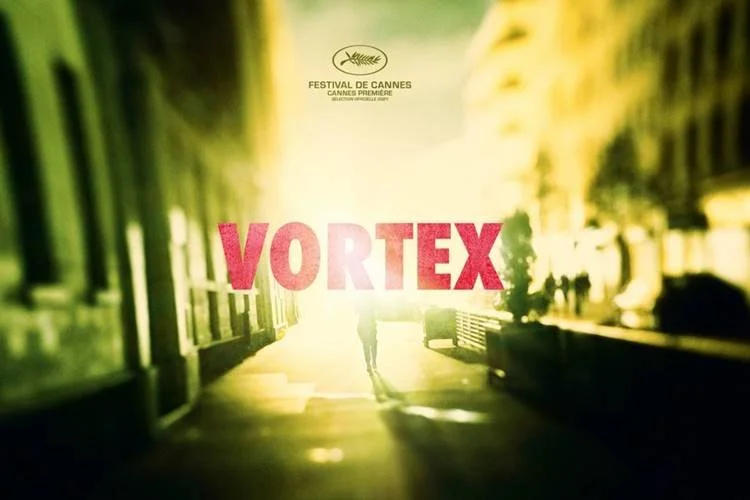Vortex: A Sombre Drama Like No Other
By William WalshIn the summer of this year, I was privileged and lucky enough to gain accreditation to the 74th edition of the famed Cannes Film Festival. My pass allowed me to attend any film screening in the final three days of the festival, so long as I could nab an e-ticket on their ticketing website. It was a very exciting experience that I felt safe during due to being fully vaccinated. I ended up seeing nine films in total. I could write my thoughts on Paul Verhoeven’s raunchy historical ‘Benedetta’ or Asghar Farhadi’s tense drama ‘A Hero’, but the film I saw that I want to write about the most is ‘Vortex’, the seventh feature film from Argentinian director Gaspar Noé.'Vortex' tells the story of a nameless couple (Played by Dario Argento and Françoise Lebrun) during the final days of their life. Lebrun’s character has dementia and needs to be under constant surveillance and care. This puts a struggle on Argento’s character who, despite loving his wife, is sad to have to constantly attend to her needs. This story and character dynamic is established with a long but great opening scene, where Lebrun walks to a shop in a stupor and Argento frantically searches for her, thinking she may have gone missing. The film takes place mostly in the couple’s apartment, a location that feels more and more claustrophobic as the suffering of the characters worsens.The most notable element of the film is its extremely unique utilization of split-screen. Instead of usual films where the technique is used only briefly, ‘Vortex’ uses it for almost the entire film. After a brief flashback that shows the couple at a happy point in their lives, the two characters are separated with the split-screen for the rest of the film, with scenes involving the husband on the left side of the screen and scenes involving the wife on the right. These scenes often overlap when the couple are in the same room, showing the same scene from two different angles. It seemed like a strange choice at first that Noé would cast Argento as a lead, as he has played only small parts in films in the past. He is most known as a film director who made many famous horror and Giallo films in the 1970s and ’80s, including ‘Suspiria' (1978) and 'Deep Red' (1975). The risk pays off, as Argento gives an emotional and real performance that I doubt many fans of his early work would have expected from him. Lebrun also gives a superb performance as the wife, a performance that I suspect will impress anyone who knows someone with dementia. The film’s script should also be noted when discussing the film performances. Noé has stated in an interview with IndieWire that the script was only ten pages long and that most of the dialogue was improvised. This is a further indication of how good the performances in the film are, as Lebrun and Argento are in tune with their characters to a degree where they can come up with convincing dialogue on the spur of the moment of shooting.Being a world premiere, I did not know what to expect (and neither did most of the audience, I assume). When thinking about Noé's previous films, I expected a film with fast-paced editing, surreal imagery and scenes of extreme violence and sexuality. I was also excited about what the audience reaction would be, considering how divisive Noé’s films usually are when they premiere at Cannes, with his 2009 film 'Enter the Void' getting a standing ovation and his 2002 film 'Irreversible' causing a number of people to faint or walk out in disgust. While the film does contain a number of his trademarks that clearly mark the film as his own (The credits are at the beginning, the camera is upside-down for one scene, etc.), it is overall a very sombre and slow-paced film that has virtually none of the provocative elements that made his earlier films so intimidating. I found the change in style to be a welcome surprise. The audience must have been of the same opinion, as they gave a standing ovation (which I joined in on) to Noé and the cast in attendance when the film finished.If I was to say anything negative about the film, it's that I feel the film is a bit too long. Even though Noé tries to sustain our interest in the main characters for almost two and a half hours, it starts to become a little tedious, not helped by the film’s slow pacing. My suggestion is that you don’t watch the film if you are feeling sleepy or tired in any way, wait until you’re fully awake.I have no idea when ‘Vortex’ will be released to general audiences, let alone Irish audiences. I am anxious to see if my opinion on the film gets better or worse on a second watch. All I can say is that if you are okay with movies that are slow-paced or sad, I would recommend that you see the film whenever you can.


